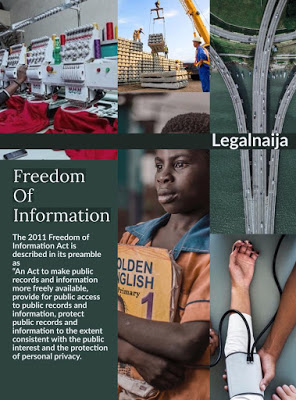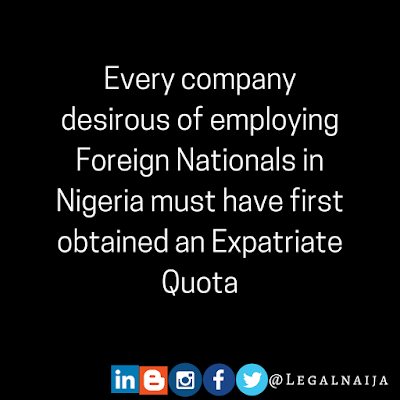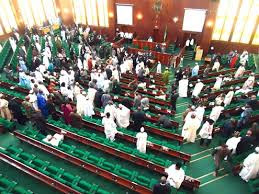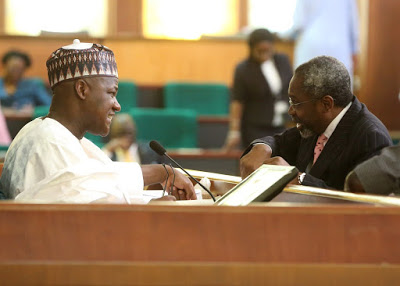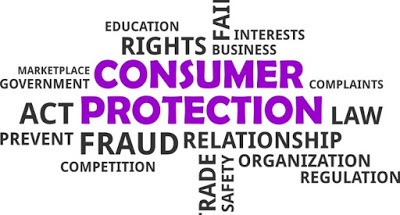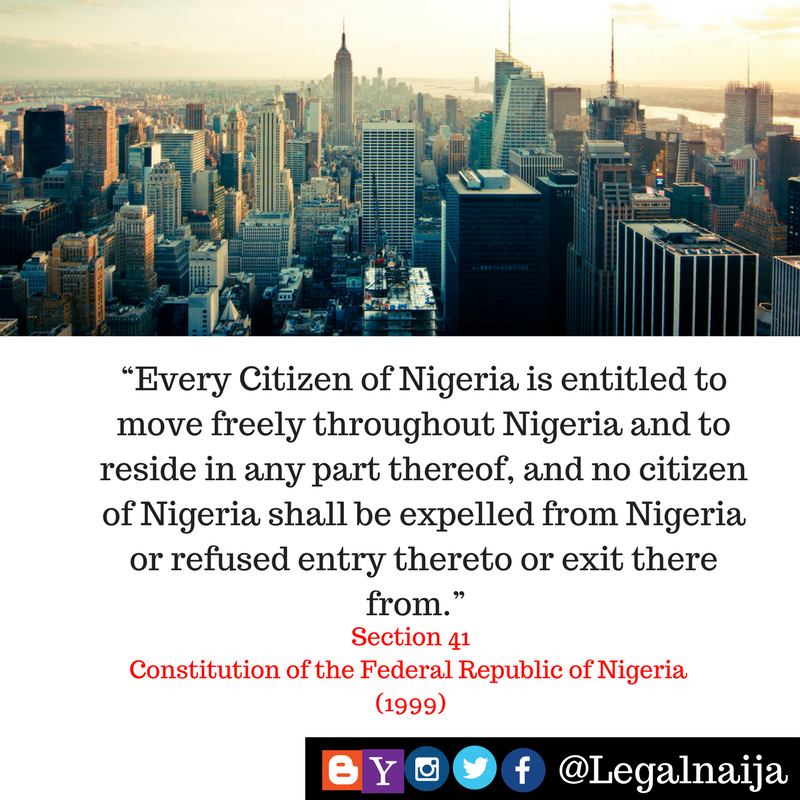
Legal Framework for Complaints Management in Nigeria’s Capital Market | Michael Dugeri

Introduction
is an expression of dissatisfaction made to an organisation, related to its
product or service. Complaints management is, therefore, the aggregate of ways,
tools and processes an organisation uses to collect, analyse, and act on
customer dissatisfaction. In
practice, customer complaints may take one or more of the following categories:
a.
complaints alleging
financial losses,
b.
complaints alleging failure
of service delivery, and
c.
complaints with potential
legal/regulatory implications.
The complaints may arise from issues such as delay in execution; poor
customer service; failure to carry out lawful instructions; negligence;
mistakes in the computation of charges/fees; and system errors or technological
failures.
It has been noted that complaints are a critical element of consumer
contact management. Customers are rarely as motivated to speak to
organisations as they are when something has gone wrong. While no one likes to
hear what they have done wrong, knowing how to receive, manage and resolve
customer complaints can yield significant insights that can help organisations
meet the current and future needs of their customers.
Beyond making individual
customers happy by addressing their problems, complaints can also be leveraged
upon by an organisation to enhance product development, mitigate risk, and find
opportunities for growth and innovation. Hence, while customer complaints are
often seen as negative events that successful organisations should avoid, forward-looking
organizations see them as vital inputs for enhancing customer satisfaction and
experience.
Complaints Management Framework of the Nigerian
Capital Market
Complaints and associated issues of product and service reliability are
often focused on by regulators because of their potential impact on a market’s
dynamism, fairness, transparency and efficiency. The
Investments and Securities Act (ISA) gives the Securities and Exchange
Commission (SEC) the responsibility to maintain efficient, transparent and
effective capital markets in Nigeria. This includes the responsibility of
ensuring that investments are not violated, misused or mismanaged in any way.
As a result, the SEC has issued Rules relating
to the complaints management framework of the Nigerian Capital Market for all
entities operating in the capital market, including the SEC. This means that
the SEC Complaints Management Framework Rules are applicable to Self-Regulatory
Organisations (SROs), recognized Capital Market trade groups, Capital Market
Operators (CMOs) and listed public companies.
The overreaching aim of the Rules is to implement a framework for
customer (investor) complaint management in the capital market to entertain
complaints arising out of issues that are covered under the following:
a. the Investments and Securities Act, 2007 (ISA),
b. the SEC Rules and Regulations made pursuant to the ISA,
c. the rules and regulations of Securities Exchanges; and
d. the guidelines of recognised trade associations.
Organisations
can only solve the problems they know about, so organisations that don’t
provide opportunities and incentives for customers to provide feedback are
missing a vital component in their quest for constant improvement and enhanced
customer experience. The SEC Rules
therefore require all entities in the Capital Market to establish complaints
management policies that are fair, impartial and objective for the handling of
complaints made in respect of all forms of complaints against operators by
client, between operators, against regulators and SROs, and trade manipulation,
accounting frauds, Ponzi schemes.
Responsibility for implementation and monitoring compliance of such
policy is vested in individual company’s/firm’s senior management. The
‘relevant Competent Authority’ is to ensure that Companies/firms have a
complaints management function which enables complaints to be investigated
fairly and possible conflicts of interest to be identified and mitigated, and
properly documented. The term ‘Competent Authority’ in relation to these rules
means SROs and recognized Capital Market trade associations.
It is pertinent to note that not all complaints are qualifying of
treatment under the Framework. For instance, complaints against unlisted,
delisted, wound up, liquidated or ailing companies fall outside the purview of
this Framework. Also not to be treated under the Framework are complaints that
are sub-judice or under the purview of other regulatory bodies.
It is also pertinent to note that a complaint must qualify as such in
order for it to be entertained. This is important in order to better manage
resources in the complaint management process. Hence, the following ‘complaints’
are not considered as deserving of attention or resolution:
a. Complaints that are incomplete or not specific.
b. Allegations without supporting documents.
c. Offering suggestions or seeking guidance or explanation.
d. Seeking explanation for non-trading of shares or illiquidity of shares.
e. Not satisfied with trading price of the shares of the companies.
f. Non-listing of shares of private offers of securities by private
companies.
g. Disputes arising out of private agreement with companies or
intermediaries.
h. Any other matters as may be determined by the SEC from time to time.
There is, however, no yardstick for determining when a complaint is
frivolous. In the absence of guidance on acceptable forms of a complaint,
companies/firms have discretion on what they consider to be incomplete or frivolous
complaints. There is the possibility that such discretion may be abused in
cases where the affected firm is more concerned with reputational damage
control than customer satisfaction.
The SEC complaint resolution framework is multi-layered, such that
complaints by clients are to be resolved by individual companies/firms within
10 days; complaints between CMOs are to be resolved by the relevant Competent
Authorities within 20 days; while the following complaints are to be referred
to the SEC for further investigation, and ultimately to the Administrative
Proceedings Committee (APC) of the SEC:
a. complaints against Competent Authorities;
b. complaints against operators by SROs/Regulator;
c. Trade manipulation, accounting frauds, Ponzi schemes and such other
complaints as may be determined by the SEC from time to time.
Complainants not satisfied with resolutions /decisions reached by SEC
reserve the right to appeal to the Investments and Securities Tribunal (IST)
provided there is full compliance with the ISA.
Finally, the Rules require every SROs, recognized Trade Associations,
CMO and public company to maintain an electronic Complaints Register, which
shall contain details such as name of the complainant, date and nature of the complaint,
and remarks/comments. The Register is to be updated regularly, and status
reports of the complaints are to be forwarded to the SEC quarterly. The
importance of a Complaints Register lies in the fact that a successful
resolution of complaints is almost as important as ensuring that the reason for
the complaint does not recur. With customers lodging
complaints across a wide variety of communication channels (such as email,
customer response surveys, and social media), many organisations have
difficulty keeping track of all the information. It is not unusual to find
these complaints piling up in the personal email accounts of frontline workers
or customer experience representatives. Without the opportunity to engage in
rigorous analyses of customer complaints, organisations lose the opportunity to
mine the deep insights that complaints can provide about the customer
experience.
Appraisal of the Complaints Management Framework
It appears that the SEC Complaints Management Framework of the Nigerian Capital Market is more
concerned with complaints about breach of a regulatory rule as against
complaints that are on internal policies or practices of individual capital
market operators. But while SEC, the regulator, may be more concerned with the overall
health of the market, individual capital market operators should leverage on
the Framework for customer service performance improvement.
Prior to the Complaints
Management Framework of the Nigerian Capital Market, it was not uncommon for
aggrieved customers/investors to engage law enforcement agencies like the Nigerian
Police or the Economic and Financial Crimes Commission (EFCC) to resolve
disputes with capital market operators, especially where the dispute involved
criminal allegations, such as embezzlement or misappropriation of funds of an
investor. It is to be noted that in involving the Police or EFCC, complainants
are often motivated by the perceived potential for quick results/resolution. The
Complaints Management Framework of the Nigerian Capital Market is intended to
discourage such tendencies, for obvious reasons. The new Framework is therefore
expected to prevent complaints from becoming disputes that might take a long
time to resolve.
It is suggested
that the prevention of complaints from becoming disputes should have formed the
basis of the Capital Market Complaints Management Framework, rather than the
resolution of active disputes in the capital market, which is already well
provided for under extant provisions of the ISA. Otherwise, the Complaints
Management Framework will only add to already existing dispute resolution
channels, such as the SEC Administrative
Proceedings Committee (APC), Investment
and Securities Tribunal (IST) and even the courts. Apart from potential
jurisdictional conflicts, the current system will only prolong the timeframe
for resolving disputes, exhaustively. As a result, the Framework should have been more focused on
complaint management as it relates to internal processes and practices of individual
capital market operators, as opposed to complaints on the laws, rules and
regulations governing the market.
Appreciating the difference
between a ‘complaint’ and a ‘dispute’ is important in delineating appropriate
resolution channels in the capital market. The ISA appreciates this difference,
as it uses ‘complaint’ for matters that are to be referred
to the APC for determination; and ‘dispute’ for matters that the IST is to
handle. Where a party files a
complaint at SEC against an operator for any securities transaction, the
complaint is referred to the Administrative Proceedings Committee for
determination. The decision of the Committee is appealable to the Investment
and Securities Tribunal (IST). The Investment and Securities Act 2007
prescribes that all actions must be concluded within 90 days at the IST. The
decisions of the IST are appealable to the Court of Appeal and subsequently to
the Supreme Court. It is unclear why the Complaints Management Framework is considered by the SEC a necessary
appendage to this statutory dispute resolution framework.
Conclusion
It is suggested that the Complaints
Management Framework should be redesigned to focus more on prevention of complaints from becoming disputes in the capital market.
This means an increased focus on the internal policies of organisations on
complaint management as against regulatory breaches. It is not realistic to expect CMOs to develop and
implement policies on all forms of complaints in the Capital Market. One way to
do this is to be clear on what qualifies as a complaint to be treated at the
individual company’s level and also make clear that the complaint management
policies of companies/firms should be tailored towards addressing complaints
about the individual internal processes of the companies/firms.
There is also the issue of awareness on the existence of the Framework
and of individual companies/firms of the customer complaint policies. The SEC
Rules should contain a provision that mandates companies/firms to notify their
customers and stakeholders of their customer complaint policies.


